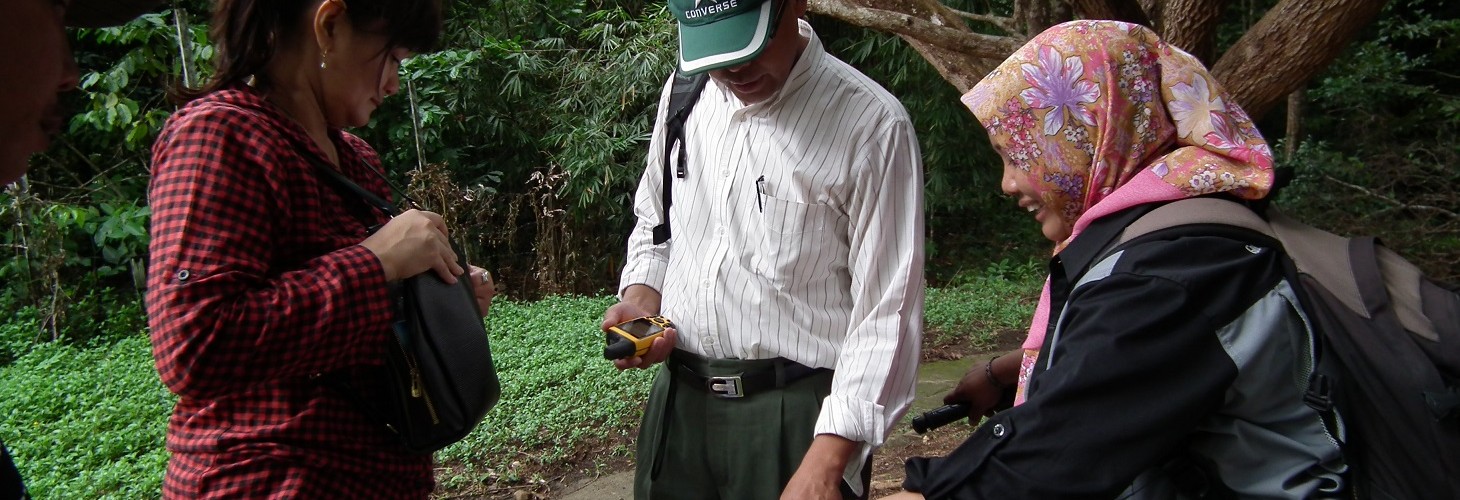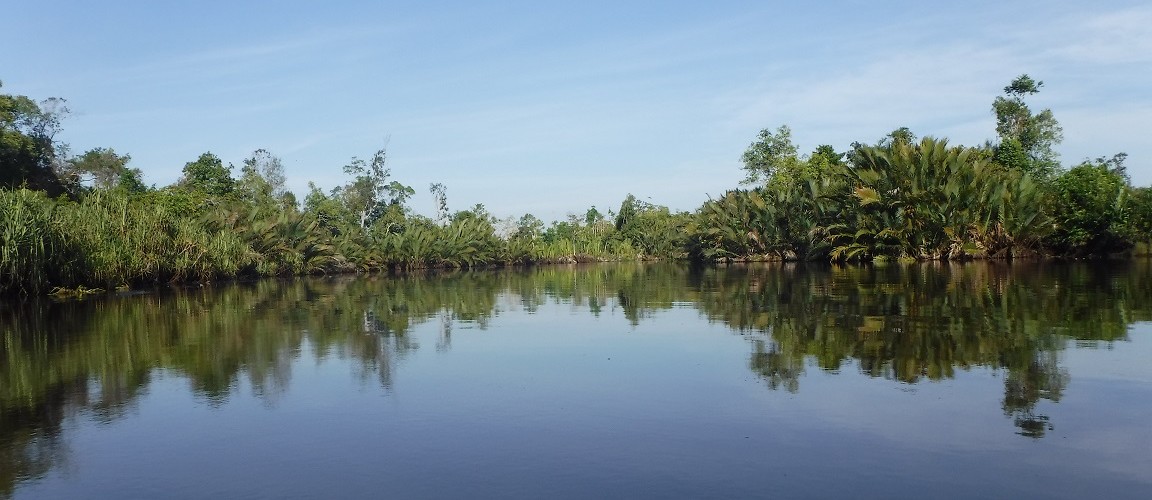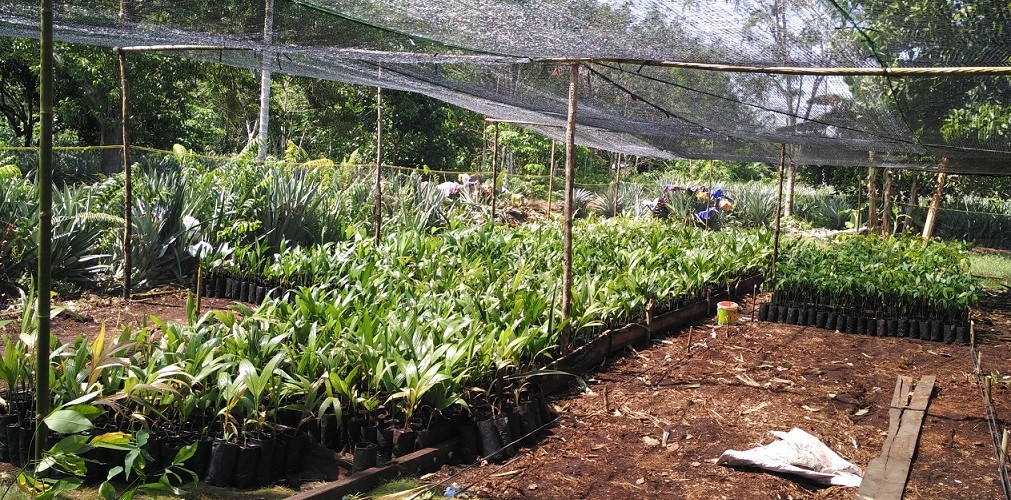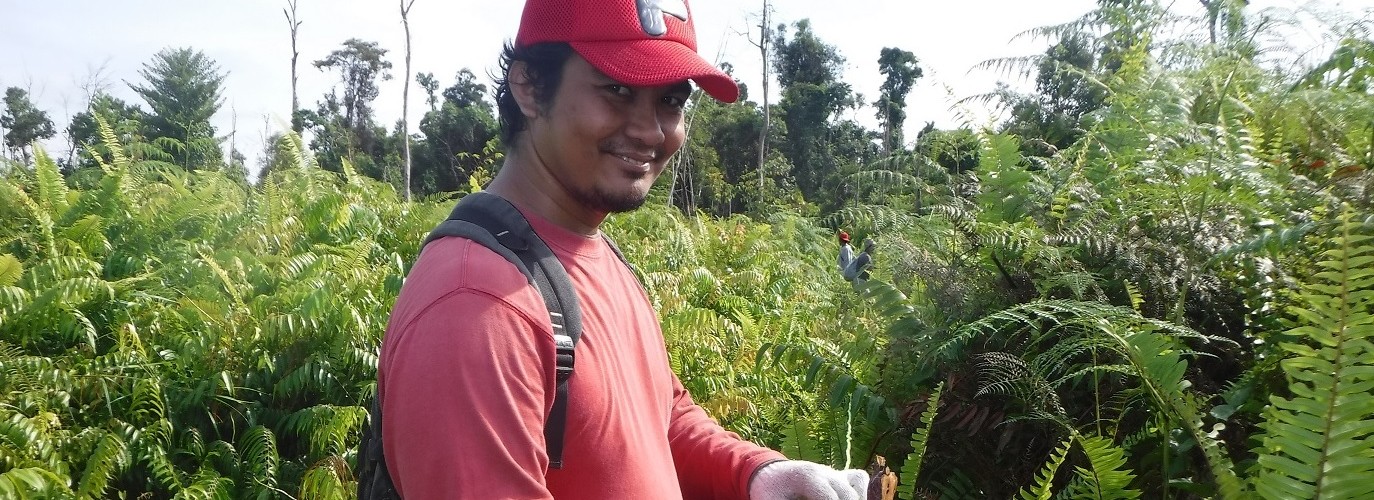By Edi Rahman, Conservation Field Director
Every year, Borneo faces devastating forest fires. Prevention of these forest and land fires is a shared responsibility and early prevention efforts have proven to be successful in reducing the amount of land burned each year. One of the efforts we make at Yayasan Palung (GPOCP) is to provide education to communities so that they understand the consequences of burning land to clear for agriculture or large-scale plantations.
Padu Banjar Village, one of the Customary Forests where we work, is an area that is prone to forest and land fires. On March 12th, we held a workshop in Padu Banjar Village, involving participants from the village as well as Pualu Kumbang Village.
During this workshop, one activity was to provide training on the manufacture of liquid smoke. This was run with the help of staff from Manggala Agni, an Indonesian Forest Fire Control Brigade which has worked in the region since 2003. Liquid smoke is made using a large furnace which burns waste from land clearing. This method of burning is safe and prevents people from burning excess vegetation which could cause forest fires. Also, by producing liquid smoke, people can sell the product and gain an alternative source of income for the community.

The people of Padu Banjar and Pulau Kumbang have many rubber tree plantations, and liquid smoke can also be used as a rubber sap freeze. This is because liquid smoke contains cellulose, hemicellulose and lignin, and can lower the pH of rubber latex, stopping the sap flow by making it clot more quickly. The production of liquid smoke is also environmentally friendly and inexpensive. Additionally, liquid smoke is commonly used as a preservative for fish, meat and tofu. If liquid smoke is used to preserve these foods, it better maintains the levels of protein and fat when compared to other preservatives. Liquid smoke is also used to produce many cosmetics, disinfectants, pest repellents and soil fertilizers.
After the training on making liquid smoke, we began another training on making solid organic compost to be used as fertilizer on farms. This training was run by Pak Asbandi, a member for the Yayasan Palung staff. The materials needed for this are easily obtained and available around Padu Banjar and Pulau Kumbang villages. In addition to saving farmers the expense of purchasing fertilizer, the use of homemade organic fertilizer can also benefit human and environmental health. The raw materials used to make organic fertilizer consists of dry and wet grass, cow dung, husks, banana peels and more.
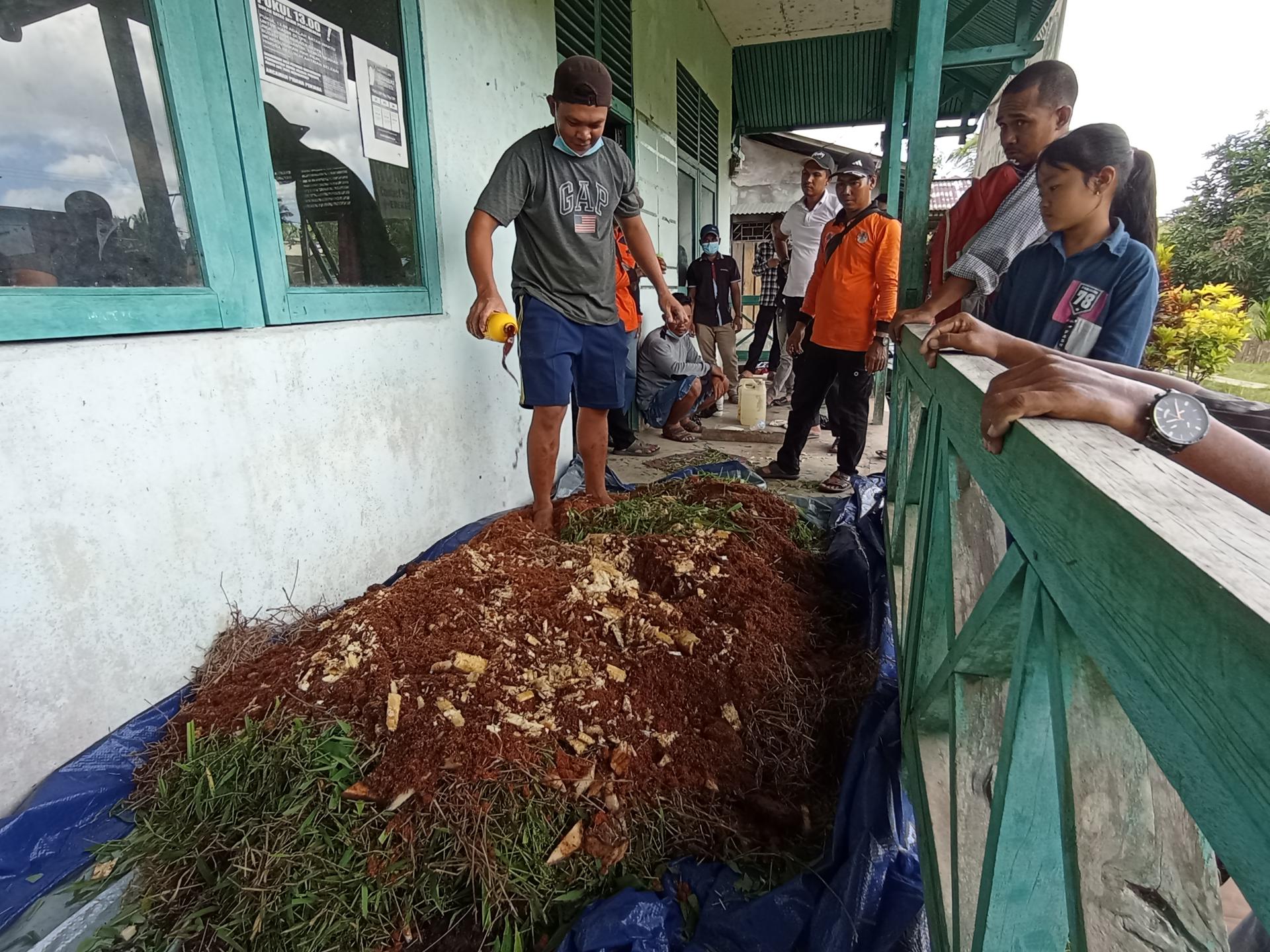
Later, we followed up on this training by creating demonstration plots of horticultural crops in Padu Banjar Village. This was coordinated by the Padu Banjar Customary Forest Management Board (LPHD). Later in the month we continued to support Padu Banjar with sustainable land clearing for farming and seedlings have now been planted, including chilis, eggplants, long beans and more. We will continue to support Padu Banjar throughout this entire process, from monitoring the land clearing up through the time that community members generate income from these newly planted horticultural crops. It is quite rewarding for our staff to see this successful process, from start to finish.

